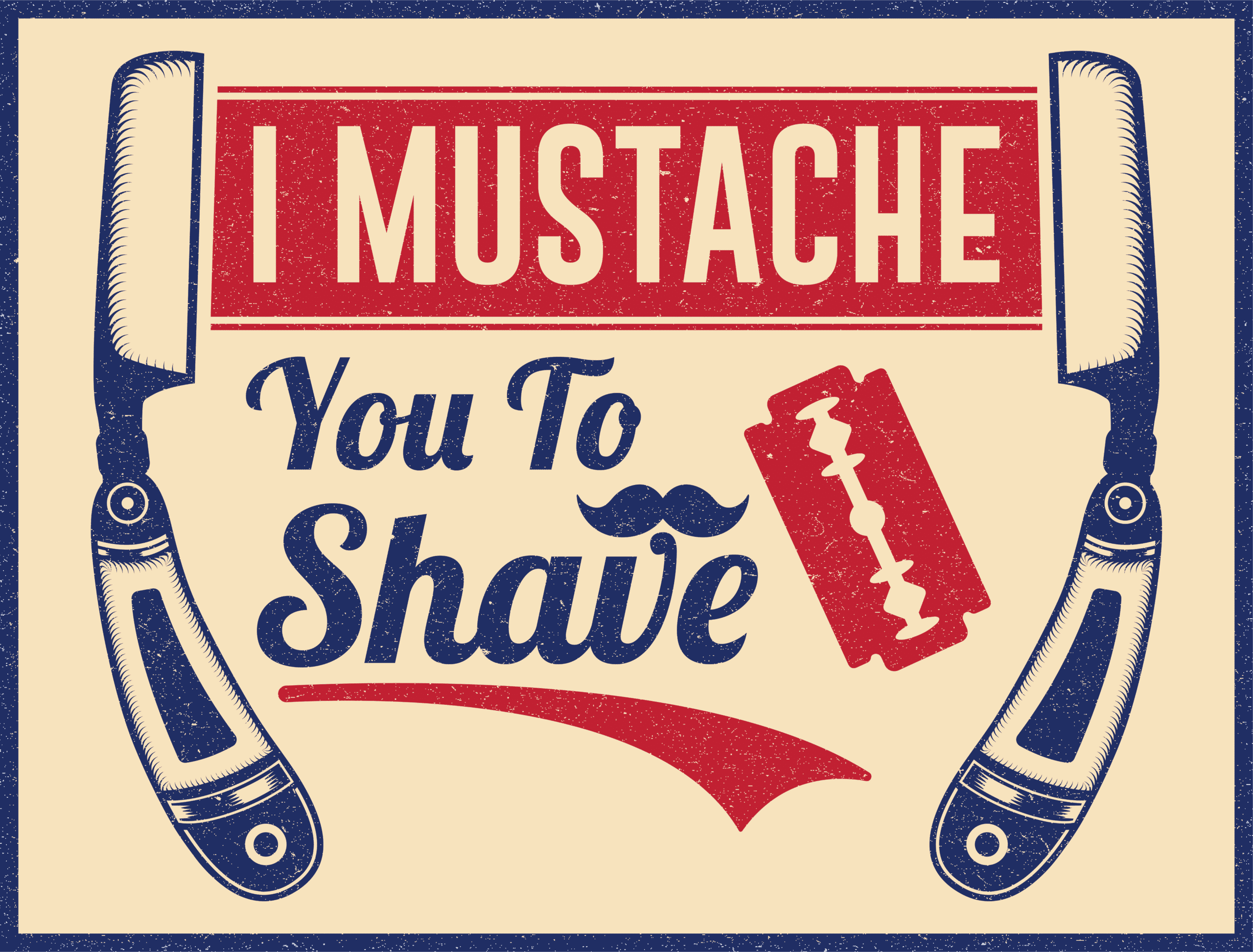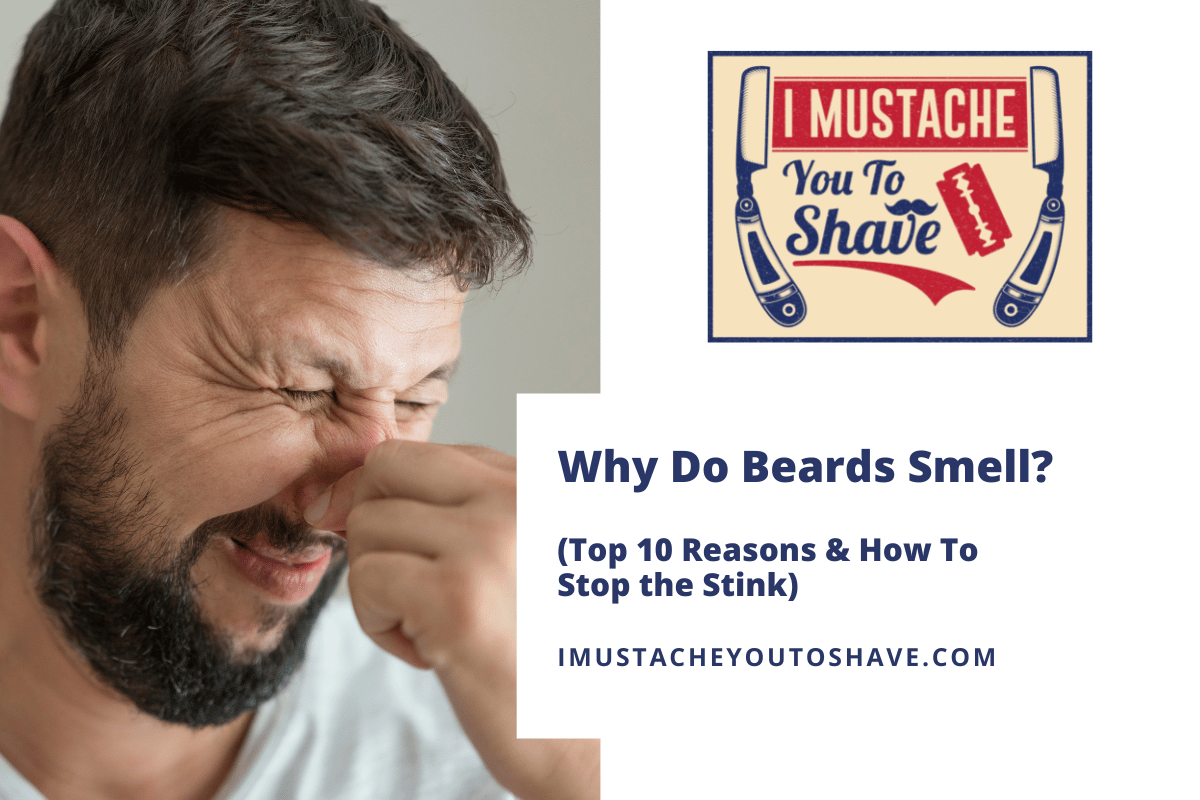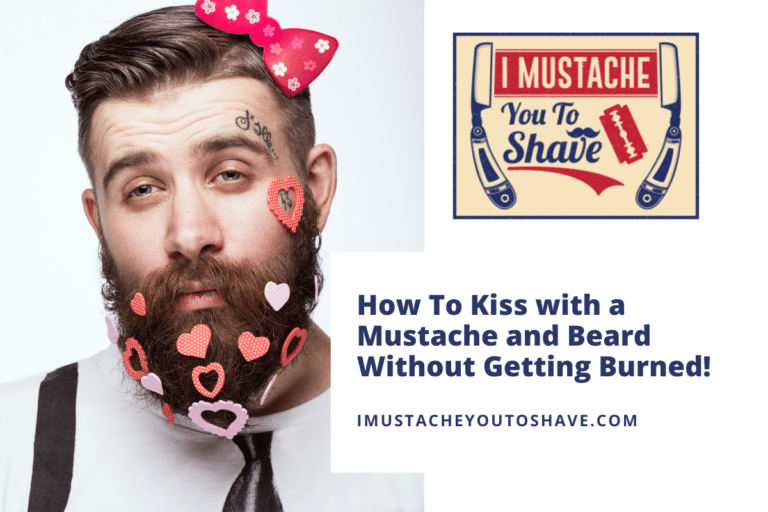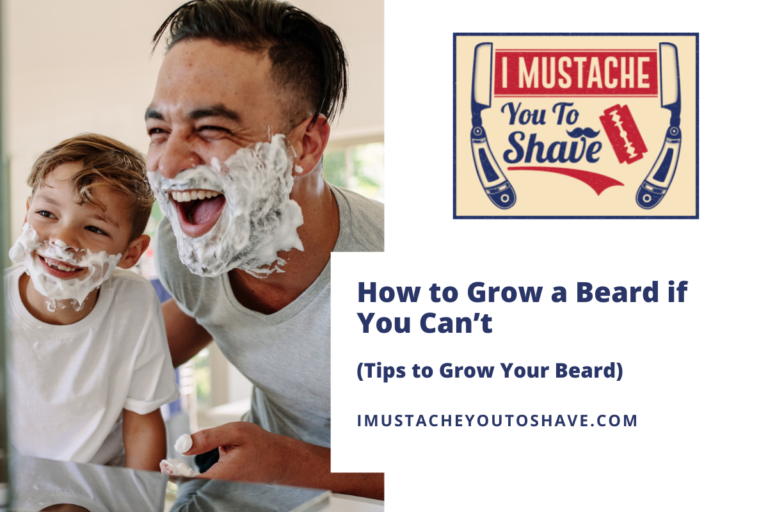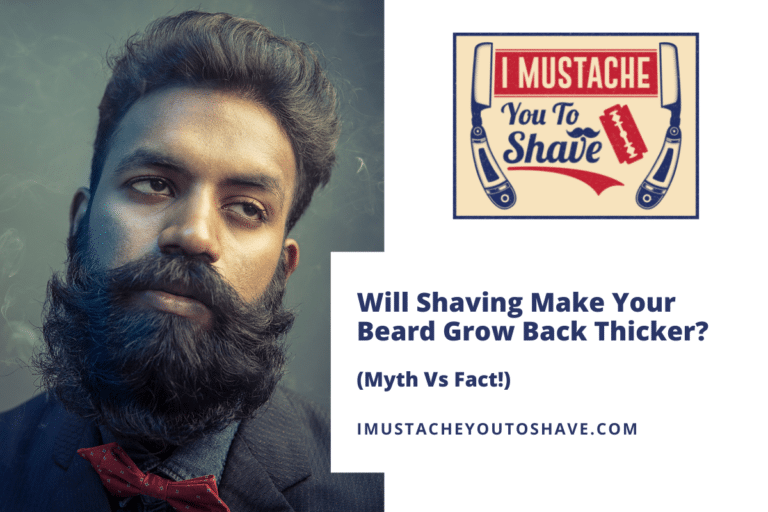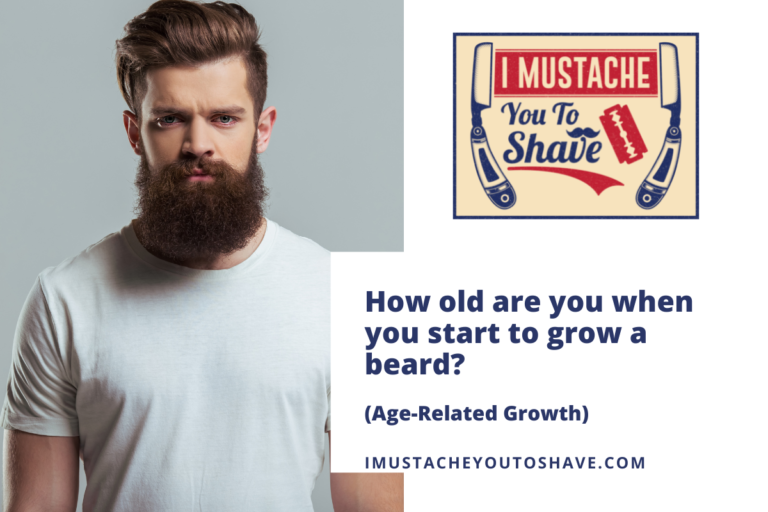Why Do Beards Smell? (Top 10 Reasons & How To Stop the Stink)
Does it ever feel like the same off-putting smell is following you around? It may be reminiscent of onions, cheese, or even puke. If you’re not eating at an Italian restaurant and aren’t getting over a stomach virus, the smelly stalker could be lurking in your beard.
Beards can have a bad smell due to natural oils, bacteria, and reactions to product ingredients. They can also smell due to the foods or drinks you consume. Your environment and habits can be beard stink culprits. Identifying the source and washing your beard frequently can eliminate most smell issues.
To learn about the most common reasons your beard stinks and what to do about it, read on!
Are stinky beards common?
If Google searches are any indication, stinky beards can be a real and annoying problem.
Stinky beards are a common problem, although they may not initially seem to be the same problem. Internet searches and forum discussions show questions relating to stinky, cheesy, musty, and vomit-smelling beards.
While you may not admit you have a funky beard to your best pals, the anonymity of the computer tells the tale. “Why does my beard smell? Why does my beard smell like cheese?” are both popular searches.
Ask these questions on a message forum and you are sure to get a fair share of heckling from some holier-than-thou-whiskered men claiming you just need to wash it ya filthy animal, but sometimes the fix isn’t that simple.
As beards rise in popularity, so do beard grooming products. In 2018, the beard care product market clocked in at 2.38 billion and is forecast to rise another 7.7% by 2025. This market includes beard oils, washes, conditioners, waxes, and creams. Men want their beards to not only be clean and healthy but smell good too.
How do you know if your beard stinks?
Often a bad smell is hard to dodge like dog farts and rotten eggs. But it is possible that we can give off an unpleasant scent without even knowing it. Unfortunately, our nose isn’t always the best at picking up personal smells. Think bad breath and B.O.
You will know your beard stinks if you can smell it or if someone else points it out to you. The smell may not be overpowering, so sometimes it’s hard to identify the source.
Have you ever had your significant other walk into the house and ask “What’s that smell?” with a scrunched-up nose? You answer, “What smell?” The garbage stinks, but you’re oblivious. Sometimes, we are too close to the situation to notice a problem and it takes an outsider to point it out.
If you or a friend has identified a weird smell coming from your beard, here are some of the most common offenders and how to fix them.
10 common reasons that your beard stinks
There are many reasons your beard might smell bad, ranging from the most immediate and easy to fix to much more complex causes.
The top ten most common reasons your beard may have picked up an unpleasant odor are:
- Natural oils
- Bacteria
- Food
- Drinks
- Environment
- Habits
- Reactions
- Over-processing
- Drool
- Dampness
Let’s take a look at these reasons in detail. Because identifying the cause is only half the battle, I’ve also included some tips on how to fix it.
Natural oils
Sebum: it’s a funny-sounding word that can cause a not-so-funny problem if it’s produced in large quantities. This waxy substance is a significant component of our body’s natural oils.
Natural oils can build up on the skin and clog pores causing an unpleasant smell, especially when mixed with sweat.
Our bodies produce natural oils for a reason. They keep our skin moisturized and protected. Sometimes, this oil production can kick into high gear and we have an overabundance. This can result in clogged pores and acne. If you get acne in your beard area or up under the beard, whiteheads and cysts can burst and the foul-smelling remains can stick to your beard.
Sebum by itself doesn’t smell, but when it mixes with bacteria and begins to break down, it can leave behind a not-so-pleasant odor. This oily mixture can hang out in your beard.
How to fix it
If you’re dealing with super oily skin, you may need a new cleansing routine.
To control oil and rid yourself of that pesky beard-stank:
- Wash your face with a face wash containing salicylic acid. This will help regulate oil and prevent it from clogging up your pores.
- Keep your beard clean and smelling great by washing it with a non-comedogenic shampoo.
- Use a good exfoliator to clear pores under your beard.
- Although it might sound counter-intuitive, moisturize your face. If you let it dry out, then more oil will be produced and you’re stuck in a vicious cycle.
Bacteria
Did you know sweat doesn’t stink? It’s true! Our sweat doesn’t have a smell, but when sweat mingles with the trillions of bacteria living on our skin the result can be quite stinky! This smell can then cling to your beard or live in that moist, shady environment up under your beard.
The bacteria living on the skin and in hair follicles can react to sweat causing an unpleasant smell in your beard.
To have a healthy skin biome, we need bacteria. In some people, sweating and bacteria become an unsavory issue. Apocrine sweat glands, which feed into your hair follicles, become active once puberty hits. The sweat produced in the beard, armpit, and genital areas often reacts to bacteria producing body odor.
How to fix it
Washing your face and beard with an anti-bacterial soap can help eliminate the unpleasant odor of onions that may be coming from your beard.
Look for a beard wash with essential oils like tea tree and lavender. They not only smell good but kill bacteria too.
Food
Onions. Garlic. Curry. Cheese. Yum! These foods and spices smell great while cooking and taste delicious, but left to hang out in your beard, they can cause stomachs to turn.
Foods stuck in your beard can spoil or curdle, causing a rank odor. Strong foods and spices can emanate from your pores, causing odors too.
Dairy products like cheese and yogurt make great toppings, but if they get stuck in your beard or ‘stache, they can spoil fast. This results in a gag-worthy smell.
Some people’s bodies are extra-sensitive to spices. Even taking garlic supplements and fish oils can cause these smells to be released through your pores. The stench can then get trapped in your beard.
How to fix it
If you have a beard, it’s always a good idea to travel with some wet wipes.
After a meal, run a wipe through your beard to get rid of any renegade food crumbs and sauces.
If you seem to be sweating out garlic bread, lay off the spices for a while and see if it makes a difference.
Drinks
If you enjoy a midnight snack of cookies and milk, your beard might take a dunk into your glass. Or maybe the frothed milk on your latte gets captured in your goatee.
Drinks can drip and cling to your beard, causing odors if not promptly removed. Drinks containing milk can curdle, causing a vomit-like smell.
How to fix it
A quick swipe of a wet wipe after a drinking session can rid your beard of any offensive odors.
If you notice a major spill, give it a good wash with some shampoo before bed.
Are you a chronic sloppy drinker? Invest in a beard apron.
Environment
Where you work and live can have negative effects on your beard.
Environmental pollution from smoke, smog, and chemicals can get trapped in beard hair, causing it to smell.
If you work in a factory where smoke is a constant or live in a prominent wildfire area, your beard can absorb the smoke scent. Maybe you cook for a living and fried foods and grease cling to your beard so much that they make you crave french fries in your sleep. Chemical fumes can be absorbed too.
How to fix it
The best way to erase environmental odors from your beard is to wash it immediately after contact.
Follow up with a beard oil or conditioning balm to keep your beard locks from damage in these harsh environments.
Fun Fact: Firemen in the 19th century thought facial hair could filter smoke keeping it out of the lungs. At one time, impressive beards and mustaches were required for this reason. Today, beards are frowned upon in the profession because the hair can interfere with the respirator seal.
Habits
Our lifestyle and unconscious habits can lead to an odiferous beard.
Habits like smoking cigarettes, vaping, and drinking alcoholic beverages can cause your beard to smell. Stroking your beard with dirty hands can also cause stinky substances to be transferred to your whiskers.
Cigarette smoke and vaping fumes can get trapped in your beard, causing the smell to hang on and follow you. While one or two IPAs or a glass of wine won’t cause a problem, excessive alcohol intake can cause toxic fumes to be released in your breath and from your pores. The smell can then hitch a ride in your beard.
Even something as mindless as stroking your beard can leave behind a smell if your hands have recently touched a dirty surface or substance. Eliminating certain bad habits can leave a lasting, good impression on your beard.
How to fix it
If you notice some of your habits are causing your beard to smell, the quickest fix is to stop the habit.
If that’s not an option, make sure to give your beard a good wash after indulging.
Reactions
Sometimes our unique bodies can have reactions to certain ingredients in grooming products.
Beards and skin can react to product ingredients resulting in an unpleasant odor. Expired or incorrectly stored grooming products can also develop a rancid smell.
One such culprit can be coconut oil. For some reason, a population of men reacts to this oil by producing an odor often described as “rank,” “rancid,” and “vomit-like”.
Sometimes a chemical reaction can happen in the product bottle, causing an off odor. Just like cooking oils can oxidize and go eventually go bad, beard oils and other grooming product ingredients can react with sunlight and heat and degrade over time. If you smear this product on your beard, you’ll likely smell like you’re past your expiration date too.
How to fix it
Take a close look at your products’ ingredient list. If it contains coconut oil, discontinue use and see if your smelly beard improves.
Also, check the expiration or best by dates on your grooming products to make sure they aren’t responsible for the off smell.
Avoid storing products in direct sunlight.
Over-processing
Have you ever burned a bag of microwave popcorn? If you have, you know the stench takes over the entire house and it’s almost impossible to remove. The same thing can happen if you apply extreme heat to your beard.
Using heat appliances or chemical straighteners to beard hair can result in an unpleasant burnt hair smell. The extreme heat or over-processing damages the hair and the smell can be hard to remove.
Some men don’t embrace their curly beards and take matters into their own hands. They grab their wife’s straightening iron or opt for a chemical relaxer. While this might provide the desired straightness temporarily, it can wreak havoc on beard health and your nose.
How to fix it
The easiest fix for that burnt hair smell is to embrace your beard’s natural texture.
If that doesn’t excite you, then break out a beard brush and a low-heat hair dryer. If you are hell-bent on using a straightener, make sure you use low heat and don’t make it an everyday habit.
Drool
We all long for deep, restful sleep. However, if you are a nighttime drooler, your beard may pay the price for your slumber.
Drooling while you sleep can make your beard smell the next morning due to mouth bacteria.
The same bacteria that cause halitosis can get caught in your beard and cause beard-a-tosis.
How to fix it
If you are a heavy sleeper, it may impossible to stop drooling.
Washing your beard upon waking can eliminate the bacteria and the smell.
Not a morning bather? Tuck your beard into a bedtime beard apron to keep it covered and drool-free.
Also, practice good oral hygiene right before bed. Floss, brush, use a germ-killing mouthwash, and scrape your tongue.
Dampness
Do you have a long full beard? This can be a blessing or a rotten-smelling curse.
Dampness in your beard can cause it to smell musty or similar to a wet dog or mildewed towels.
If you get whiffs of a wet dog but don’t own one, your beard may be to blame. Moist, damp hair can stink, especially if the air around you is hot and humid. That hard-to-dry area under your beard can become a breeding ground if it is in a constant state of dampness.
How to fix it
If you’re plagued with a musty smell in your beard, make sure to dry your beard thoroughly after washing.
To speed the process up, use a hair dryer on low heat.
